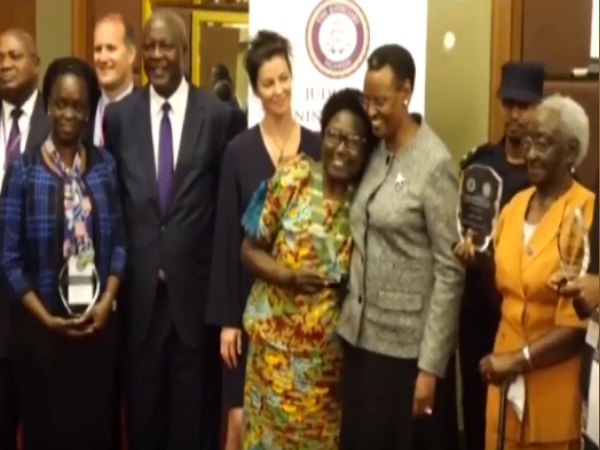Uganda is still registering high cases of sexual and gender-based violence with Criminal Courts handling over 60% of these cases. According to the Chief Justice Bart Katureebe, this is only a small figure of what exactly is at the grassroots since the biggest percentage never makes it to the Courts of law. "The Hague reports, Hague is the Head Institute for law integration has it that 95% of the people in Uganda with the justice need, only 5% are able to reach the formal system the Courts and on the 5% only 2% or less have access to a lawyer. Now, we can gauge where our women and children lie." Said, Bart Katureebe – Chief Justice.
The US Ambassador to Uganda Deborah Malac notes that with 1 out of every 3 girls experiencing sexual violence at a tender age, there is the need for the government to spread its activities to the grassroots. “The same survey revealed that only half of those children report the behaviors and less than 10% seek help and social support. Why? The study found that perpetrators of sexual violence as we probably know are commonly well known to the victims. Which may hinder both children and their families from reporting these crimes.” Said, Deborah Malac – The US Ambassador to Uganda. While officiating at the same, the Minister of Education and Sports Janet Kataha Museveni noted that the government has invested in education and legal structures to empower the girl child to be self-resilient in the face of sexual-based violence. She, however, noted that policies alone are not enough. “I testify that education has been a great tool in the agenda of empowerment. The educated child can be empowered to differentiate between what is right and wrong, not to engage in sexual activities and to contribute to the common good and the government has therefore promoted the UPE system of education as the first line of instruction for the girl child.” Said, Janet Kataha Museveni – Minister of Education.
The women in leadership alongside other stakeholders in the Justice system were meeting in their second conference to deliberate on how best the marginalized women in the community who suffer sexual and gender-based violence can be helped and their perpetrators reprimanded. “And why we have you as leaders are for each one of us to say what can I add to the voice that is calling for us to address this saddest issue of gender-based violence in our societies. What solution do we have for the women we saw in Fort Portal, seven months pregnant and whose arms were chopped off by a husband because she had sold maize and she wanted the money for school fees and the husband wanted money to drink." Said, Bart Katureebe – Chief Justice. Even with different foremost instructions and policies that are aimed at curbing gender-based violence, the vice is still high within the country largely driven by the division on how exactly perpetrators should be treated.

